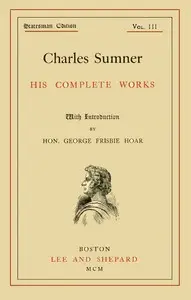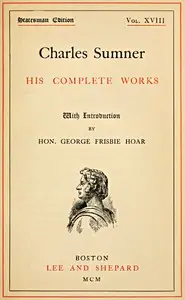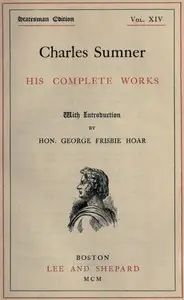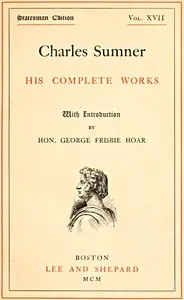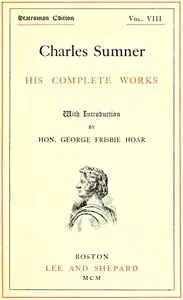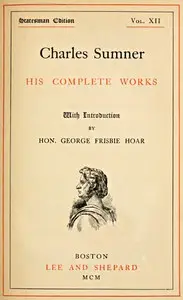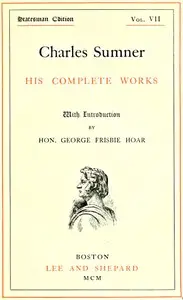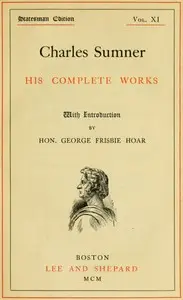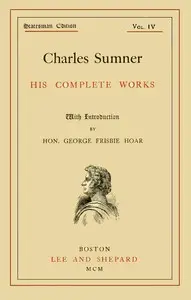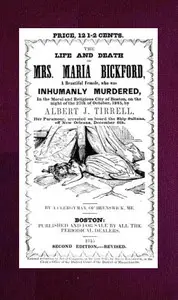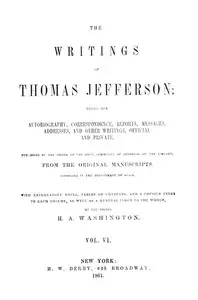"Charles Sumner: His Complete Works, Volume 16" by Charles Sumner is a historical anthology that showcases the author's powerful speeches and writings during the Reconstruction era. As a leading voice for abolition and equality, Sumner's work highlights the pivotal debates around civil rights, national identity, and the role of government. This collection opens with letters and addresses that underscore Sumner's commitment to equal rights and national unity following the Civil War era. He focuses on the government's responsibility to ensure equality for all, advocating for the rejection of political elites and promoting voting rights for all men. Later, Sumner's address to the New York Young Men's Republican Union explores the core relationship between state rights and national power, setting the stage for his advocacy for a unified nation founded on human rights.
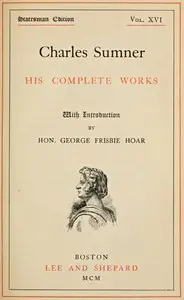
Charles Sumner: his complete works, volume 16 (of 20)
By Charles Sumner
Immerse yourself in the fiery words of a senator as he battles for equality and unity in a nation recovering from war.
Summary
About the AuthorCharles Sumner was an American lawyer, politician, and statesman who represented Massachusetts in the United States Senate from 1851 until his death in 1874. Before and during the American Civil War, he was a leading American advocate for the abolition of slavery. He chaired the Senate Foreign Relations Committee from 1861 to 1871, until he lost the position following a dispute with President Ulysses S. Grant over the attempted annexation of Santo Domingo. After breaking with Grant, he joined the Liberal Republican Party, spending his final two years in the Senate alienated from his party. Sumner had a controversial and divisive legacy for many years after his death, but in recent decades, his historical reputation has improved in recognition of his early support for racial equality.
Charles Sumner was an American lawyer, politician, and statesman who represented Massachusetts in the United States Senate from 1851 until his death in 1874. Before and during the American Civil War, he was a leading American advocate for the abolition of slavery. He chaired the Senate Foreign Relations Committee from 1861 to 1871, until he lost the position following a dispute with President Ulysses S. Grant over the attempted annexation of Santo Domingo. After breaking with Grant, he joined the Liberal Republican Party, spending his final two years in the Senate alienated from his party. Sumner had a controversial and divisive legacy for many years after his death, but in recent decades, his historical reputation has improved in recognition of his early support for racial equality.

